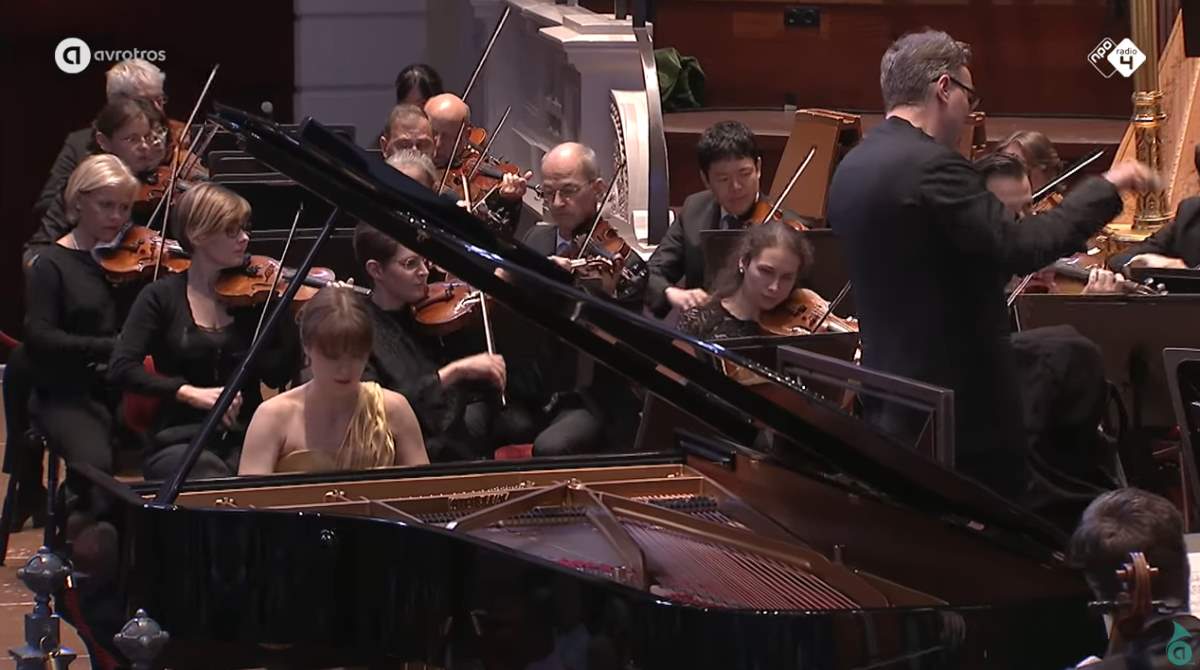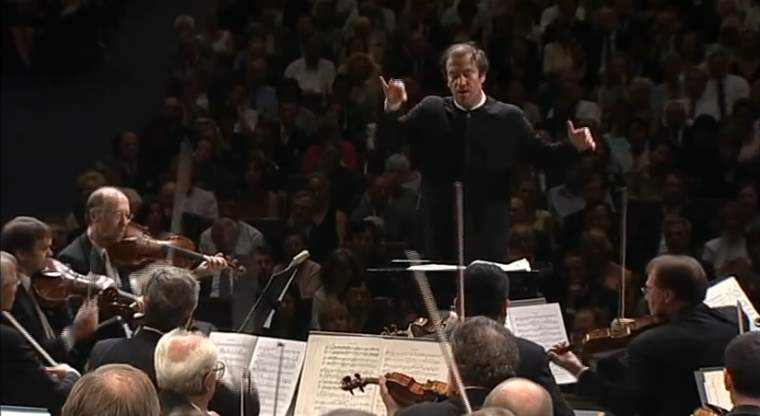Conducted by the legendary Italian conductor Claudio Abbado (26 June 1933 – 20 January 2014), the Lucerne Festival Orchestra performs pieces from the Russian composers Pyotr Ilyich Tchaikovsky [The Tempest], Sergei Rachmaninoff [Piano Concerto No. 2], and Igor Stravinsky [The Firebird]. Soloist (piano): Hélène Grimaud [Rachmaninoff’s Piano Concerto No. 2]. Recorded live at the Lucerne Festival in Summer, on 22 August 2008.
Programme
1. Pyotr Ilyich Tchaikovsky: The Tempest, Symphonic Fantasia after Shakespeare, Op. 18
Pyotr Ilyich Tchaikovsky’s “The Tempest, Symphonic Fantasia after Shakespeare, Op. 18” is a symphonic poem written in F minor in 1873. It is based on William Shakespeare’s play “The Tempest” and was premiered in December of that year, conducted by Nikolai Rubinstein.
The structure of the piece is similar to Tchaikovsky’s more well-known “Romeo and Juliet” fantasy-overture, and it features themes that capture the calm of the sea, the grotesqueness of Caliban, and the love shared between Ferdinand and Miranda. The love music is particularly powerful, reminiscent of the love music in “Romeo and Juliet.”
2. Sergei Rachmaninoff: Piano Concerto No. 2 in C minor, Op. 18
Soloist (piano): Hélène Grimaud
composer Sergei Rachmaninoff. It was composed between 1900 and 1901 and was first performed in Moscow in 1901, with Rachmaninoff himself as the soloist.
The concerto is known for its soaring melodies, rich harmonies, and virtuosic piano passages. It is written in three movements, with the first and last movements in a fast tempo and the second movement in a slow, lyrical tempo.
- Moderato (C minor). The first movement features a dramatic opening, followed by a lyrical second theme, and a cadenza that showcases the soloist’s technical abilities.
- Adagio sostenuto – Più animato – Tempo I (C minor – E major). The second movement, which is sometimes played as a standalone piece, is a beautiful and melancholic melody played by the piano with the accompaniment of the orchestra.
- Allegro scherzando (E major – C minor – C major). The finale of Rachmaninoff’s Piano Concerto No. 2 features a lively and energetic theme that builds up to a triumphant finale.
The piece became one of the most popular and frequently performed piano concertos in the classical repertoire, and it has been featured in numerous films, including “Brief Encounter” and “Shine.” The concerto’s fame has been attributed in part to its accessibility and its ability to evoke strong emotions in listeners.
3. Igor Stravinsky: L’oiseau de feu (The Firebird)
“The Firebird” (French: “L’Oiseau de feu”; Russian: “Жар-птица”, “Zhar-ptitsa”) is a ballet and orchestral work by the Russian composer Igor Stravinsky. It was composed in 1910 for Sergei Diaghilev’s Ballets Russes company, with choreography by Michel Fokine.
“The Firebird” tells the story of Prince Ivan, who captures the magical Firebird and is granted a feather that he can use to summon her for help in the future. He later falls in love with a princess and must rescue her from the evil sorcerer Kostcheï, with the help of the Firebird.
The ballet’s music is characterized by Stravinsky’s use of complex rhythms, colorful orchestration, and innovative harmonies. The famous “Infernal Dance” from the ballet, which depicts Kostcheï’s minions dancing frenziedly, is particularly memorable for its pulsing rhythms and unusual tonalities. The score also features lush, lyrical melodies, such as the soaring theme of the Firebird herself.
“The Firebird” was a breakthrough work for Stravinsky, establishing him as one of the leading composers of the early 20th century. Its premiere in Paris in 1910 was a huge success, and it has remained a popular and frequently performed ballet ever since. The score has also been adapted into concert suites, which are often performed by symphony orchestras.
The idea of mixing the mythical Firebird with the unrelated Russian tale of Kostcheï the Deathless (the most common feature of tales involving Kostcheï is a spell that prevents him from being killed) possibly came from a popular child’s verse by the Russian poet Yakov Polonsky (18 December [O.S. 6 December] 1819 – 30 October [O.S. 18 October] 1898), “A Winter’s Journey” (Zimniy put, 1844), which includes the lines:
And in my dreams, I see myself on a wolf’s back
Riding along a forest path
To do battle with a sorcerer-tsar (Kostcheï)
In that land where a princess sits under lock and key,
Pining behind massive walls.
There, gardens surround a palace all of glass;
There, Firebirds sing by night
And peck at golden fruit.
Sources
- The Tempest (Tchaikovsky) on Wikipedia
- Piano Concerto No. 2 (Rachmaninoff) on Wikipedia
- The Firebird on Wikipedia


